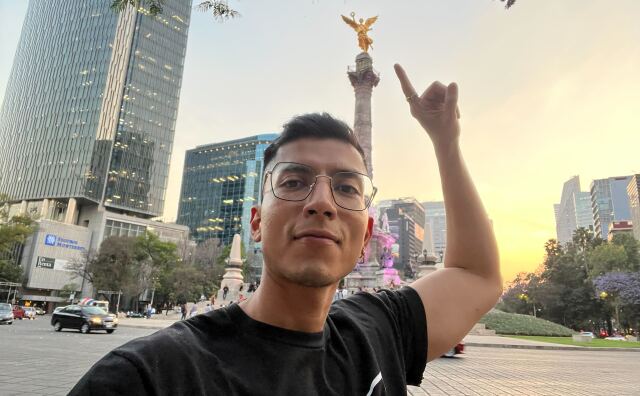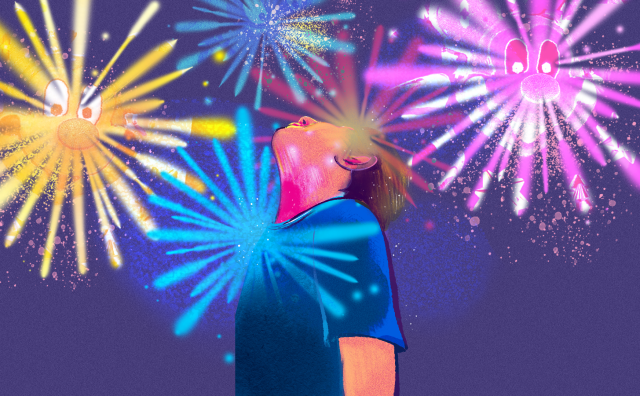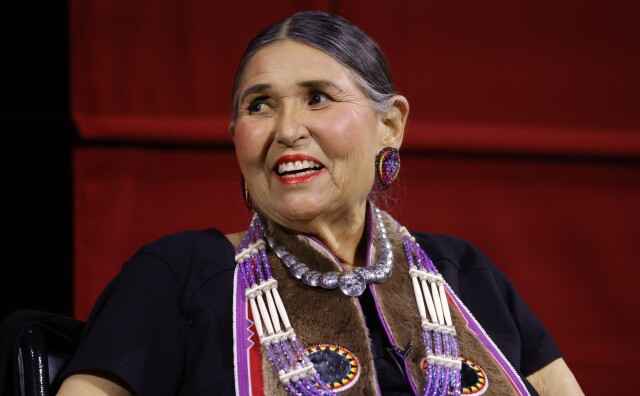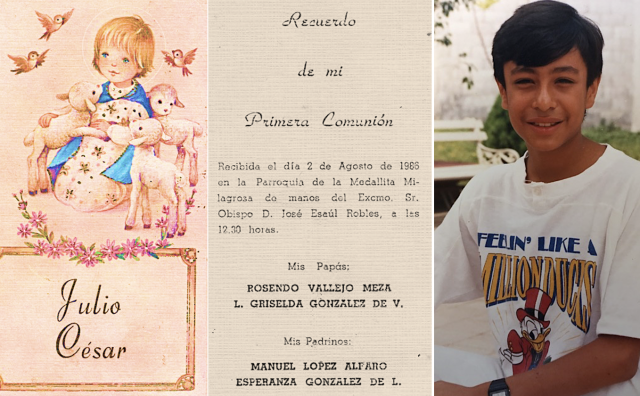The family WhatsApp group pinged this past Sunday night with a message from my father, who had sent a dua, an Islamic prayer that we typically recite in remembrance of the dead.
I was confused — it was not my mother’s death anniversary and there was no recent death in the family. Then I glanced at the calendar: it was already 9/11 in Sri Lanka.
When the two planes crashed into the World Trade Center 22 years ago, I was around 8,700 miles away at my grandmother’s funeral in Colombo, Sri Lanka. I was 11 years old wearing a black skirt and purple button-down shirt with a black chiffon shawl loosely wrapped around my head, wondering if my father would make it to his mother’s funeral. He was working in Dubai at the time and since mobile phones weren’t as widely available then, it was after work hours when my father got the news that his mother had passed. And under Muslim beliefs, we bury our dead within 24 hours of their death.
My father did make the funeral, and we buried my grandmother on September 12. While we passed around Marie biscuits and cloudy lumps of sugar crystals, America was reeling from one of the biggest terror events of the 21st century, one that would in time profoundly impact foreign policy and change life as they knew it for American Muslims.
Little did I know the events taking place in New York would inform my career choice and influence how I report. Yet, at the time, I only truly understood what had happened a few days after the funeral because for my Sri Lankan Muslim family, when there is a death in the family we turn off the TV for three days. And this was before the age of social media.
Growing up in the era of the Sri Lankan civil war, I was no stranger to bomb blasts and suicide bombers. My first memory of one was when I was 6, watching on TV as plumes of black smoke quickly took over the sky while people scampered away from the site of the Central Bank bombing in Colombo. With four journalists in my immediate family and my father working for a newspaper, I was de-sensitized to the news pretty early on.
-
What candidates can — and can't — say they do
-
Nonprofit's launching fundraiser to keep it afloat
-
USC study documents what residents want from trees
But, watching those planes fly into the buildings was different.
Maybe it was the sheer audacity of it? Maybe it was seeing the Bin Laden name at construction sites quite often as a kid in Dubai and the disbelief that someone from this family could commit such a heinous crime? Maybe it was because this was all we heard about on the news or read about?
If you ask me who the Secretary of State and Defense Secretary is right now, I need a moment to think. But, back then, with my father playing CNN on a loop everyday, Condoleezza Rice, Colin Powell, Donald Rumsfeld were household names.
Growing up in the shadow of 9/11, I also became hyper aware of how American media was portraying the Middle East; the very place that offered my parents a safe space to raise their children away from the terrors of Sri Lanka’s civil war. I have a complicated relationship with Saudi Arabia, where I was born, and the UAE, where I have lived the longest. But in the media I saw a place I did not recognize from my own experiences: an unsafe, backward, almost barbaric place where women are oppressed and locked away by men who are terrorists.
I hated what I was seeing on TV.
Yes, some countries in the Middle East still have a long way to go in terms of affording human rights to all residents. America present and past has its own bad history.
In the UAE, I watched movies, went bowling, and sat in food courts alongside men, who looked like those shackled at Guantanamo Bay. I never once felt unsafe in the 20 years I lived in the Middle East. The very women branded as oppressed I looked up to, I aspired to be like — they were my teachers, my aunties, my mother.
After 9/11, all of a sudden, the people I knew, the communities I grew up with became the enemy.
It wasn’t until I was 18, living in Malaysia, that I fully comprehended how 9/11 had shaped my formative years. Wanting to escape a future in the sciences, I completed the Ontario Secondary School Diploma in Malaysia. My teacher, Ms. Sutter, showed us a video in our “World Issues” class about the media’s role in the 2003 U.S. invasion of Iraq.
I watched how the words “weapons of mass destruction” were repeated, over and over again. Television channels ran the story, without fact-checking. Muslims — and the Arab world — became the enemy.
Has that gone away? Depends on who you ask.
In 2017, a few months before I boarded a flight to LAX to begin life here, a former colleague told me I should change my name and remove my headscarf so I could have it easy. His name was Amir but he went as Alex when he was in America.
The culture of surveillance, the othering, has defined the American Muslim experience (read about how it affected my friend Salma in this Los Angeles Times story). But, so has fortitude.
When I read Los Angeles Times journalist Lorraine Ali’s piece in 2021, I was shocked to learn that Americans did not see Saddam Hussein’s execution like I did (every gruesome detail), that it wasn’t splashed on front pages like it was in the UAE.
When I decided to pivot back to journalism after a brief stint in marketing, I did so by enrolling in a graduate program at USC. In my first chat with my mentor, Dr. Allissa Richardson, I mentioned that I wanted to continue writing for the web or a print publication. She asked me why I wasn’t considering radio or TV.
I told her: I am a Muslim woman who wears a headscarf and has a weird accent.
Dr. Richardson encouraged me to bring my whole self into the newsroom.
And here I am today, a hijab-wearing woman in a Southern California newsroom — and you hear my voice on the radio.
My whole reason for entering this profession is to ensure the accurate coverage of communities; it’s easy to paint whole swathes of a community with one brush.
That anger and hurt that I felt listening to anchors talk about a Middle East and Arab world I did not recognize? That informs my own reporting on communities.
But just as there is beauty in taking time to observe the intricate detailing and reflecting on an artist’s thought process behind a painting, so too is there beauty in truly understanding a community’s humanity.







